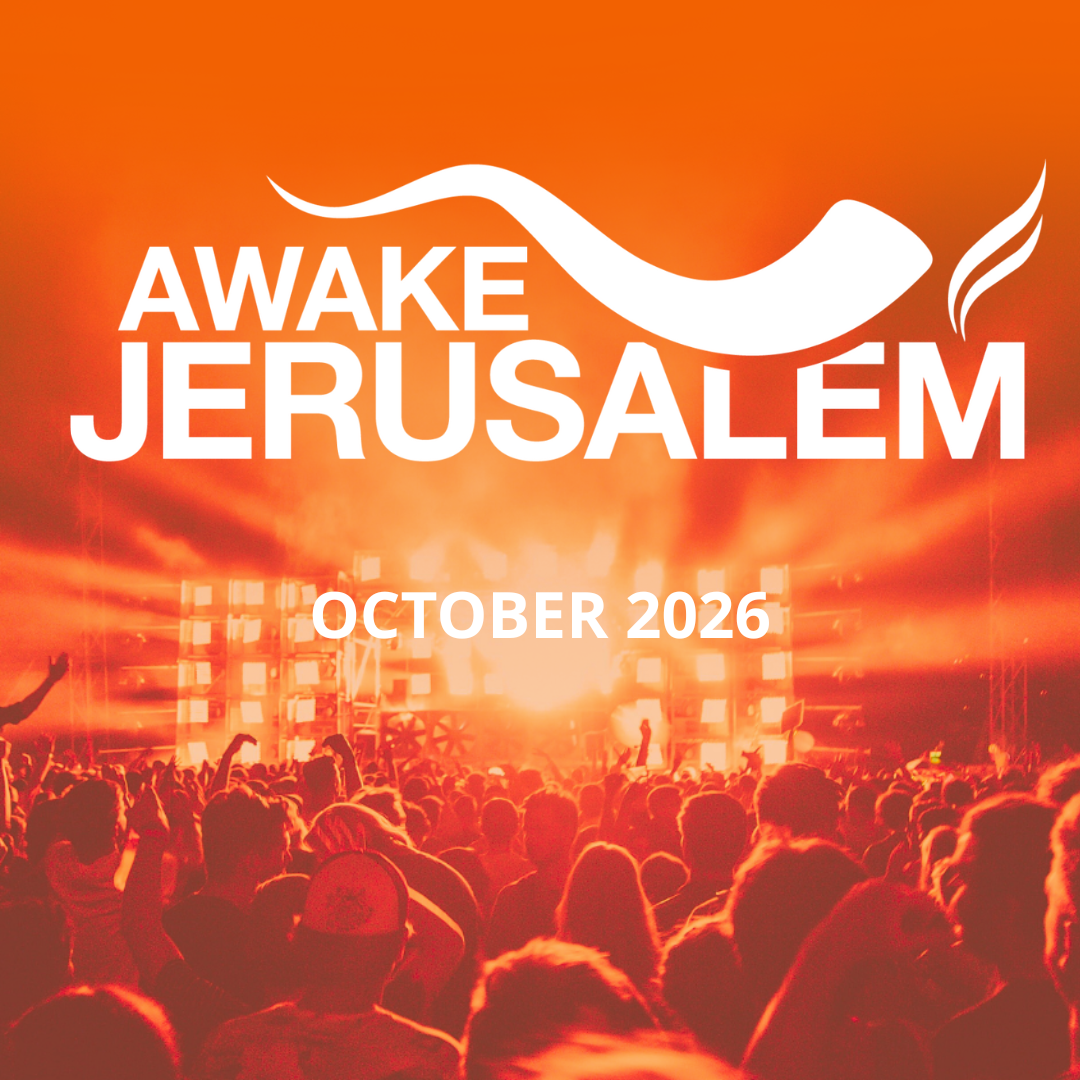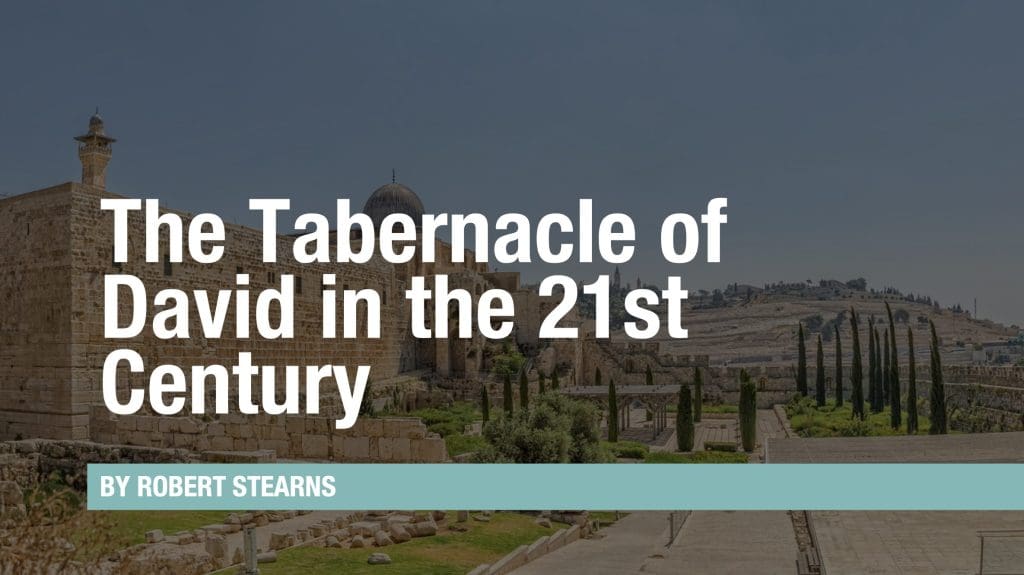In Amos chapter 9, God through His prophetic servant spoke absolutely pivotal words that pointed towards a future and glorious restoration of His house, involving both Jew and Gentile. This powerful foretelling of events in God’s plan has arrested my heart for more than 25 years:
“On that day I will raise up
The tabernacle of David, which has fallen down,
And repair its damages;
I will raise up its ruins,
And rebuild it as in the days of old;
That they may possess the remnant of Edom,
And all the Gentiles who are called by My name,”
Says the Lord who does this thing. (Amos 9:11-12, NKJV)
Notice that when God’s Presence is restored in the Tabernacle of David, it is for the inclusion and blessing of all the nations: “…and all the Gentiles who are called by My Name” (v. 12). This restoration in God’s house is a central key to the fulfillment of the nations – as they receive and walk in God’s salvation.
God’s house, the spiritual center for the global impact of His Kingdom, is a house of prayer (see Isaiah 56:7). If we are to see spiritual renewal in the Church and the ultimate fulfillment of the Great Commission, we must align our vision of God’s house with His vision of His house.
This House of Prayer is also known as the House (or Tabernacle) of David. David was determined to see God’s kingdom authority established on the earth. No cost was too high; no sacrifice too great.
The Tabernacle of David was a place of worship and prayer, a place of unfettered devotion in the Presence of God. This was David’s priority. He couldn’t wait to get the Ark of the Covenant back in the central place it was meant to be.
David’s tabernacle was not an impressive building. In fact, it was merely a tent. But God wasn’t concerned about that – He liked what was going on inside. David, along with the priests and Levites he appointed, led God’s people in extravagant, whole-hearted worship. They sang endlessly, danced raucously, shouted, knelt, clapped, and lifted up skilled music to God. They did this constantly – twenty-four hours a day, seven days a week, three hundred and sixty-five days a year. This Davidic worship was the key to Israel’s success and well-being.
What does the Tabernacle of David look like today, in the 21st century? What are those qualities of the worship from ancient Israel that God is reawakening and restoring in this hour? I would suggest that the Western Church can learn much from the faithfulness and determination of the Hebrew, Judaic – biblical – form of worship. David’s worship is decidedly corporate, tribal, shared among a people – even as it is kept aflame in personal time alone with God. As God’s people gather, there is a sound released that more fully expresses the powerful depths of His heart.
In this crucial time of history, I believe that God is looking for those who will arise in this call of worship and intercession. There are five principal ways that every believer can activate this calling:
Praise. Something happens in the atmosphere around us when God’s people begin to praise. There is a reason that God exhorts His people over and over in His Word to praise Him in all circumstances, to lift our voices and our lives in worship, and to exalt His name! Armies of darkness are routed, righteousness prevails, people are set free from hindrances and the entanglements of the enemy, joy breaks forth, and unity rises. Praise is opening our mouths and declaring who God is, whether we are alone or with multitudes of others.
Prayer. Actually pray! Many prayer meetings or teachings about prayer will talk about prayer, which is necessary to equip the people of God. But if we don’t actually pray, we won’t learn what it means to be priests before the Lord. Scripture is absolutely central to this and should be used to formulate our prayers. There is no more anointed prayer than what God has already said to us. As we speak forth His words, we will bring the desires of His heart to pass in the midst of the chaos and instability of the world around us. In this calling of prayer, one of our primary biblical mandates is to pray for the peace of Jerusalem (Ps. 122:6), which will in turn release blessing to all the nations.
Proclamation. To proclaim is to tell of the Lord’s mighty deeds (see Ps. 145:6). When we proclaim what God has done, we release faith for what He is about to do. Revelation 12:11 says, “And they overcame [the Devil] by the blood of the Lamb and by the word of their testimony.” By proclaiming that God is wholly able, we assert His omnipotent authority over all the kingdoms of the world. The proclamation of God’s Kingdom is the issuing forth of the good news that we can expect as sons and daughters of the King of Kings.
Prophecy. Probably the most misunderstood item on this list, prophecy can often be messy because it is mystical by nature, and perhaps more than any other aspect of the Christian life is often altered by personal subjectivity. Prophecy requires that we walk in step with the Holy Spirit, have a solid foundation in God’s inerrant Word, and grow in true discernment. Moses said in Numbers 11:29, “Oh, that all the LORD’s people were prophets and that the LORD would put His Spirit upon them!” Likewise, the Apostle Paul says, “I wish… even more that you prophesied” (1 Cor. 14:5). The Old and New Testaments are full of examples of those who prophesied, or who called into existence the things of God’s Kingdom when they had not yet manifested. Joel 2 promises that in the last days our sons and daughters will prophesy – it is time for us to walk in expectancy of this gift in the Church!
Personal Ministry. As the people of God are gathered together in large and small groups, God’s desire is to minister personally to individuals, equipping and transforming them through relationship with Him and with others. Acts 13 describes how the early Church was gathered together in fasting and praying, and the Holy Spirit directed them to lay hands on Barnabas and Saul (Paul) and send them into a strategic ministry assignment that God had prepared for them to complete. Whether it is prayer for the sick, personal encouragement and edification, or prayers of blessing and commissioning, personal ministry is part of our calling as God’s people to impart strength to others in the Tabernacle of David in this hour.
In these and many other ways, our God wants to train us to be His ambassadors in the earth today. Will you respond to His voice and take your place in His army of worshippers? He is waiting for you in this moment, to strengthen and commission you to carry His heart to every corner of your city and region. It is time for the Tabernacle of David – the house of worshipping prayer warriors – to arise!





